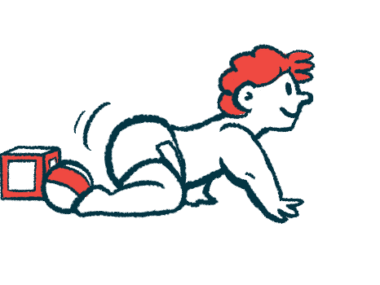How Will Pompe Disease Affect My Work Life?
Written by |
If you have late-onset Pompe disease (LOPD) and are employed, or are considering employment, you’re likely going to need some workplace adjustments, particularly as the disorder progresses. Here’s some information about how Pompe disease might affect your work life.
What is Pompe disease?
Pompe disease is a debilitating and progressive disorder characterized by the buildup of a sugar molecule called glycogen inside cells. This accumulation impairs the working of different tissues and organs.
There are three types of Pompe disease: classic infantile-onset, non-classic infantile-onset, and late-onset Pompe disease.
Late-onset Pompe disease is usually milder than the infantile-onset forms, with symptoms usually appearing in late childhood or adolescence, and occasionally in adulthood. Patients usually experience muscle weakness, aches, cramps, headaches, and fatigue.
How might the disease affect my employment?
According to the results of two surveys conducted with 102 LOPD patients in the U.S., patients missed an average of two days of work monthly due to enzyme replacement therapy infusions. Some 63% of patients in the surveys who were unemployed reported Pompe disease as the reason.
Other survey results shed light on challenges LOPD patients may face on the job or as they enter the workforce. Accordingly, more than half of patients required walking and respiratory assistance. About 75% had difficulty climbing stairs, and 36% reported infusion-related fatigue.
What can I ask of my employer?
At some point, you may need to ask your employer to make some changes to your job so that you can continue working. To learn your rights and benefits, contact your government.
It also may be a good idea to have a plan in place in case you have a medical emergency while on the job. This way, your employer and co-workers know about your condition and how to react.
What workplace adjustments might help?
Depending on your symptoms and their severity, you may need some adjustments, adaptations, or other tools at work to help you do your job. Those may include:
- assistive technology such as listening or communication devices
- raised toilet seat or adapted toilet
- seat cushions, stand-up chair, adapted seating, arm rests, adjustable tables
- ramps, doorways to accommodate wheelchairs, wheelchair-accessible cafeteria and lavatory appliances, staircase lifts
What else can I do?
Seeking the advice and support of other people with Pompe disease can help. They may be able to suggest ways to handle workplace issues.
You could also consult with your physiotherapist or occupational therapist for advice on how to make your work life easier.
Last updated: March 9, 2021
***
Pompe Disease News is strictly a news and information website about the disease. It does not provide medical advice, diagnosis, or treatment. This content is not intended to be a substitute for professional medical advice, diagnosis, or treatment. Always seek the advice of your physician or other qualified health provider with any questions you may have regarding a medical condition. Never disregard professional medical advice or delay in seeking it because of something you have read on this website.


